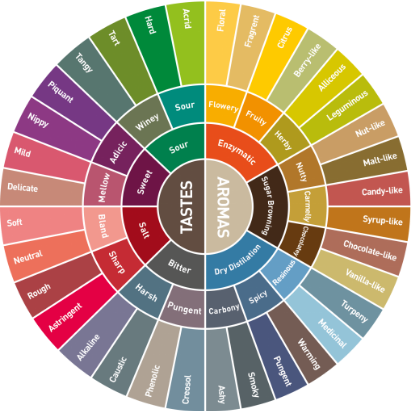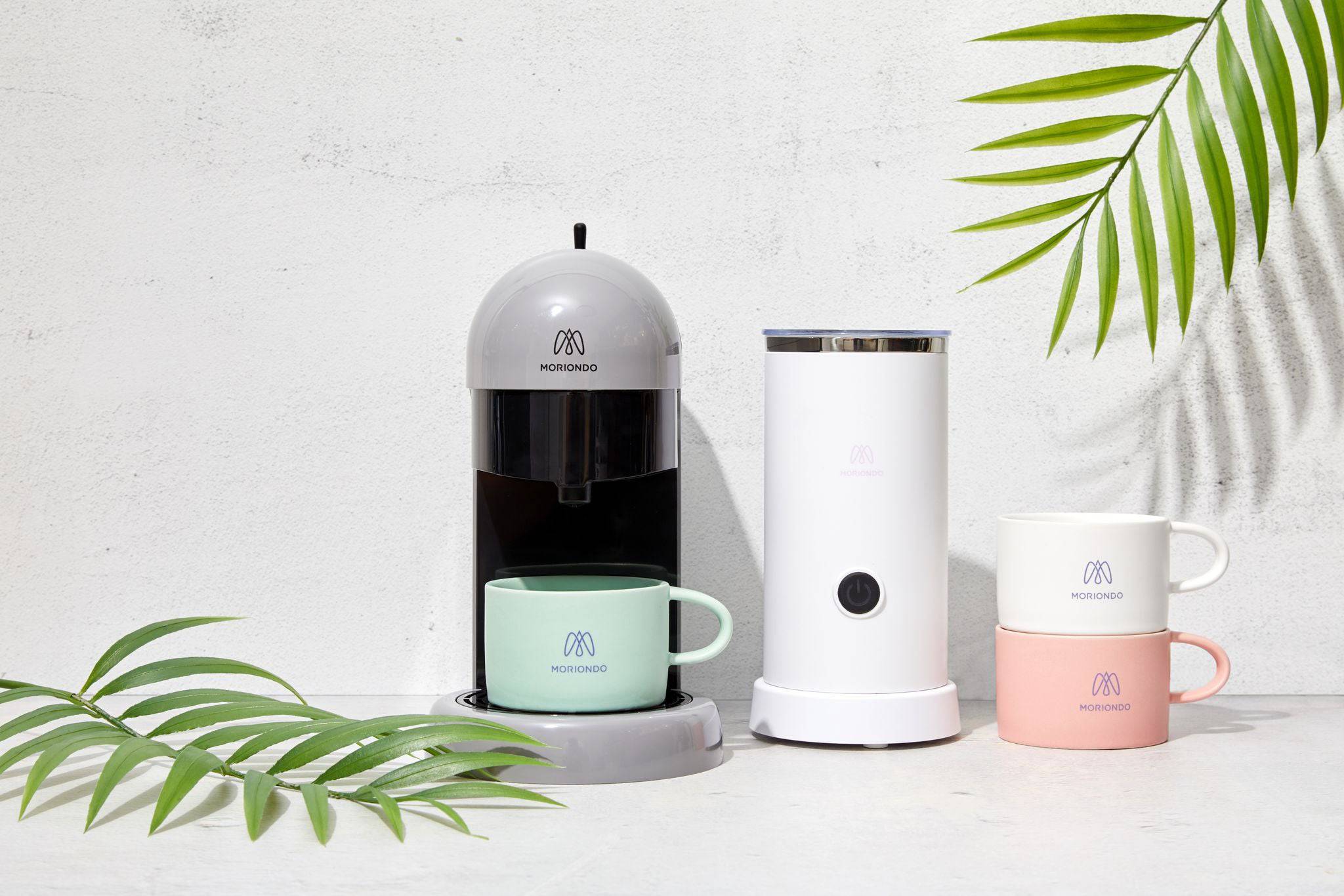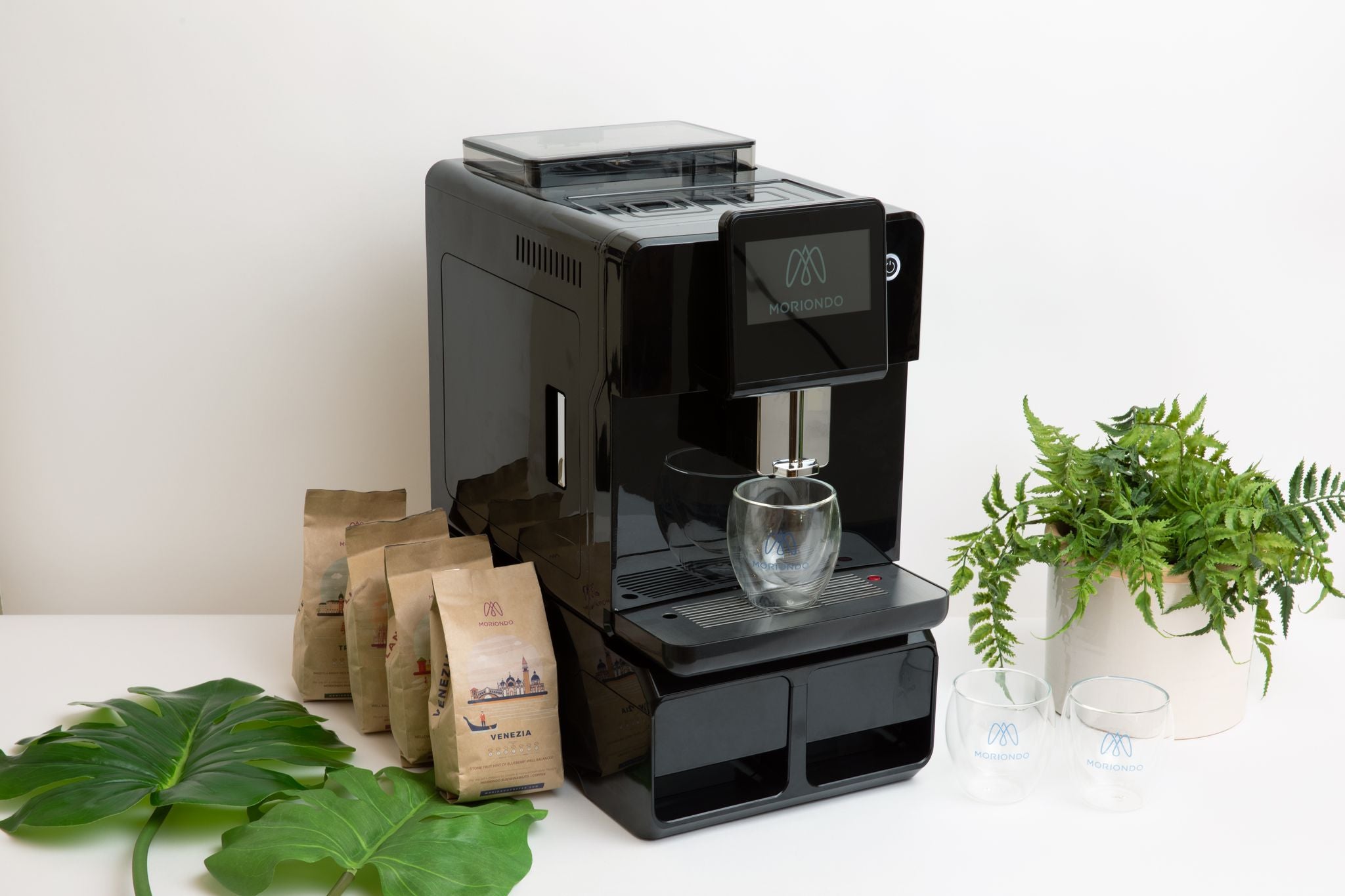A Guide to Sustainable Office Coffee Practices in 2023
Are you tired of your office's coffee practices leaving a negative impact on the environment? It's time to make a change and embrace sustainable coffee practices. Not only will it benefit our planet, but it can also lead to healthier and happier employees. In this guide, we'll show you how to choose sustainable beans, brew with eco-friendly methods, reduce waste in the office kitchen, support ethical companies, and implement a sustainability plan that works for your team. Let's dive into the world of sustainable office coffee!
Why Sustainability Matters in the Office

Sustainability may not be the first thing that comes to mind when you think about your daily cup of coffee, but it's a crucial consideration for any workplace. By choosing sustainable office coffee practices, we can reduce our carbon footprint and support ethical business practices.
Sustainability is important because it helps us preserve natural resources and protect the environment. The coffee industry is notorious for causing deforestation, water pollution, and other environmental damage if proper precautions are not taken. Sustainable practices help mitigate these effects by reducing waste and promoting eco-friendly methods.
Sustainable coffee practices also benefit employees' health and wellbeing. By choosing organic or Fair Trade beans over conventional ones, we can avoid harmful chemicals in our bodies while supporting farmers who receive fair wages for their labor.
Embracing sustainability in the office demonstrates a commitment to social responsibility that builds positive relationships with clients and customers alike. When everyone works together towards a common goal of sustainability, it creates a sense of purpose and community within the workplace.
Choosing Sustainable Coffee Beans

Choosing Sustainable Coffee Beans
When it comes to sustainable office coffee practices, the type of beans you choose is crucial. Opting for coffee beans that are sustainably sourced can make a significant impact on the environment and support ethical farming practices.
One way to ensure your coffee beans are sustainably sourced is by choosing Fair Trade or Direct Trade options. While both promote fair wages and working conditions for farmers, Fair Trade certification requires specific standards be met across all aspects of the supply chain.
Another consideration when selecting coffee beans is whether they are organic or conventional. Organic coffee crops are grown without synthetic pesticides or fertilizers, making them a healthier option for both people and the planet.
By taking into account these factors when choosing your office's coffee beans, you're not only contributing to a more sustainable future but also supporting ethical farming practices and promoting healthier living.
Fair Trade vs. Direct Trade: What's the Difference?

When it comes to sustainable coffee practices, choosing the right beans is crucial. Two of the most common terms you might come across are "fair trade" and "direct trade." But what's the difference?
Fair trade refers to a certification that ensures farmers receive fair prices for their crops and work under safe conditions. This method also supports community development projects in coffee-producing regions. On the other hand, direct trade involves establishing personal relationships with individual farmers or cooperatives, cutting out middlemen and ensuring higher profits for producers.
Both methods have their merits, but ultimately it comes down to personal preference and values. Some companies prioritize fair labor practices while others focus on building strong supplier relationships.
Regardless of which route you choose, make sure your company prioritizes transparency in its sourcing practices so employees know they're contributing to ethical business practices when they enjoy their morning cup of office coffee.
Organic vs. Conventional: Which is Better for the Environment?

When it comes to choosing coffee beans for your office, you may be wondering whether organic or conventional options are better for the environment. Organic coffee is grown without synthetic pesticides and fertilizers, while conventional coffee is often produced with these chemicals in order to increase yield.
However, organic farming practices prioritize soil health and biodiversity, which can contribute to a healthier ecosystem overall. By avoiding synthetic inputs, organic farmers avoid polluting water sources and harming beneficial insects and animals.
In addition, many fair trade cooperatives that work with small-scale farmers require their members to use sustainable farming methods such as composting and intercropping. This not only benefits the environment but also supports local communities.
Choosing organic coffee may help support more environmentally-friendly agricultural practices and protect our planet's natural resources.
Sustainable Brewing Methods

Brewing coffee can have a significant impact on the environment. Therefore, it is important to consider sustainable brewing methods. One of the best ways to reduce environmental impact is by using traditional coffee makers instead of single-serve machines. Traditional brewers produce less waste and use less energy.
Another way to practice sustainability with your office brew is by choosing alternative milk options. Milk cartons generate a lot of waste in landfills, but there are other options like almond or oat milk that come in recyclable containers or can be made in-house. Additionally, brewing only what you need at one time helps to reduce waste and save money.
For an even more environmentally-friendly option, consider investing in a reusable filter. Reusable filters not only eliminate the need for paper filters but also minimize unnecessary trash going into landfills. By implementing these sustainable techniques when brewing your office coffee, you can make positive changes towards creating an eco-conscious workplace culture!
Single Serve vs. Traditional Coffee Makers

When it comes to making coffee in the office, there are a variety of brewing methods available. Two popular options are single serve and traditional coffee makers.
Single serve machines have become increasingly popular due to their convenience and ability to brew individual cups of coffee quickly. However, these machines often require individual plastic pods which can create a substantial amount of waste.
On the other hand, traditional coffee makers use ground coffee beans and reusable filters which can significantly reduce waste. Additionally, they often allow for larger batches of coffee to be made at once which is ideal for shared office spaces.
Choosing between single serve and traditional brewing methods depends on your priorities as an office. If convenience is key, then single serve might be the way to go. But if sustainability is a priority, then opting for traditional brewing methods with reusable filters may be a better choice.
Alternative Milk Options to Reduce Waste

When it comes to office coffee practices, one area where sustainability can be improved is in the choice of milk. Traditional dairy milk production has a significant impact on the environment due to greenhouse gas emissions and excessive water use. However, there are alternative options that not only reduce waste but also have a smaller environmental footprint.
One option is plant-based milks such as almond, soy or oat milk. These alternatives are often packaged in cartons made from renewable materials and can be recycled after use. Another option is using powdered or condensed milk that requires less packaging and lasts longer than traditional liquid dairy products.
Additionally, workplaces can encourage employees to bring their own reusable cups and mugs for their morning beverage rather than relying on single-use containers provided by the office kitchen. This small change could significantly reduce waste in the workplace while also promoting a more environmentally conscious culture within the company.
By choosing alternative milk options for your office coffee, you're making a positive impact on both your carbon footprint and local landfills. Small changes like these may seem insignificant at first glance but when done collectively they make an enormous difference towards creating a sustainable future for our planet!
Reducing Waste with Sustainable Office Practices

Offices can generate a significant amount of waste, especially when it comes to coffee consumption. But there are ways to reduce the environmental impact of your office's coffee practices. One effective method is by using reusable mugs and filters instead of disposable ones.
By switching to reusable products, you not only decrease the amount of waste generated but also save money in the long run. Another way to reduce waste is by composting used coffee grounds and selecting compostable cups or other products for use in the office kitchen.
Encouraging employees to adopt sustainable habits like these can have a positive impact on both your company's bottom line and the environment. By implementing these small changes, you'll be taking an important step towards creating a more eco-friendly workplace culture that values sustainability as much as productivity.
Using Reusable Coffee Mugs and Filters

Using reusable coffee mugs and filters is an easy way to reduce waste in the office. Instead of using disposable cups and filters, invest in a few durable and eco-friendly options that can be washed and reused again and again.
Not only does this help the environment by reducing the amount of plastic waste generated from single-use products, but it also saves money in the long run for both employees and employers alike. By providing reusable mugs or encouraging employees to bring their own, businesses can cut down on unnecessary expenses associated with purchasing disposable cups.
Additionally, using a reusable filter instead of disposable paper filters can greatly reduce waste as well. Not only do they last longer than traditional paper ones, they also provide a better brewing experience overall by allowing for more flavor to come through without any added chemicals or aftertaste.
Composting Coffee Grounds and Compostable Products

Composting is a great way to reduce waste and give back to the environment. When it comes to coffee, one of the easiest ways to compost is by using coffee grounds. Instead of throwing them in the trash, simply collect them in a container and add them to your compost pile.
Not only are coffee grounds great for adding nitrogen-rich materials to your compost pile, but there are also many other compostable products that can be used in conjunction with your office's sustainable practices. For example, switch from plastic utensils and plates to more eco-friendly options made from bamboo or cornstarch. These items can easily be added to your compost bin when you're finished with them.
It's important for companies who want to implement sustainable office practices to educate their employees on the benefits of composting coffee grounds and other organic materials. Encourage everyone in the office kitchen area to participate by providing clear instructions on what can be added into the bin and where they should go once they have collected enough material.
Supporting Sustainable Coffee Companies

When it comes to promoting sustainability in coffee practices, supporting sustainable coffee companies is crucial. These companies prioritize ethical and eco-friendly practices throughout their supply chain, from sourcing coffee beans to packaging the final product.
Researching company sustainability practices can help you identify which brands align with your values. Look for certifications such as Fair Trade or Rainforest Alliance and read about each company's commitment to reducing their carbon footprint.
Subscribing to sustainable coffee delivery services can also be a great way to support eco-conscious businesses while enjoying delicious coffee. These services often work exclusively with small-scale farmers who use organic farming methods and pay fair wages.
By choosing to support sustainable coffee companies, you're not only making a positive impact on the environment but also supporting ethical business practices that benefit communities worldwide.
Researching Company Sustainability Practices
As consumers continue to prioritize sustainability, it's important to research the practices of companies before supporting them. When it comes to office coffee, this means taking a closer look at the sourcing and production methods used by coffee companies.
One way to start researching company sustainability practices is by looking for certifications such as Fair Trade or Rainforest Alliance. These organizations ensure that farmers are paid fairly and environmental standards are met throughout the supply chain.
In addition to certifications, you can also check a company's website or reach out directly to ask about their sustainability efforts. This can include information on waste reduction initiatives, energy-efficient equipment in facilities, and support for local communities. By doing your research and choosing sustainable coffee companies, you can make a positive impact on both the environment and society.
Subscribing to Sustainable Coffee Delivery Services
One of the easiest ways to ensure that your office coffee practices are sustainable is by subscribing to a sustainable coffee delivery service. These services offer a variety of options for businesses looking to make the switch to environmentally-friendly coffee, including both fair trade and organic beans.
Not only do these services provide high-quality coffee with ethical sourcing methods, but they also often prioritize eco-friendly packaging and shipping practices. By using compostable or recyclable materials and minimizing waste, these companies help reduce the carbon footprint associated with traditional shipping methods.
Subscribing to a sustainable coffee delivery service can be an excellent option for businesses looking for convenience without sacrificing their commitment to sustainability. With options ranging from single-origin blends to unique roasts from around the world, there's something out there for every taste preference. Plus, knowing that you're supporting ethical and eco-conscious business practices can give you peace of mind while enjoying your morning cup of joe.
Implementing Sustainable Office Coffee Practices
Educating employees on the importance of sustainability is essential for implementing sustainable office coffee practices. Many people are unaware of the environmental impact that their daily cup of coffee can have, and it's important to raise awareness about how small changes in our habits can make a big difference.
Creating a sustainability plan for the office kitchen is also crucial. This plan could include guidelines on purchasing sustainable coffee beans, using reusable mugs and filters, composting coffee grounds and choosing alternative milk options to reduce waste. By setting clear goals and expectations, everyone in the office will be able to work together towards a more sustainable workplace.
Implementing these practices may take some time and effort but it's worth it. Sustainable office coffee practices not only benefit the environment but can also improve company culture by creating a shared sense of purpose among colleagues. With everyone working together towards this goal, we can create a better world - one cup of sustainably sourced and brewed office coffee at a time!
Educating Employees on the Importance of Sustainability
One of the most critical steps in implementing sustainable office coffee practices is educating employees about their importance. Many people may not be aware of the impact that their daily cup of coffee can have on the environment. By providing information and raising awareness, employers can encourage their teams to make more conscious choices.
It's essential to explain why sustainability is crucial for our planet's health and well-being. Employees need to understand how unsustainable practices harm ecosystems and contribute to climate change. They should also be informed about how small changes in behavior, such as choosing reusable cups or composting coffee grounds, can make a significant difference.
Next, provide information on what each individual can do within the office space to promote sustainability. Encourage them not only to use eco-friendly products but also to take ownership of their actions by starting initiatives and sharing knowledge with colleagues.
Make sure employees feel heard by allowing them opportunities for feedback and suggestions on how sustainable practices could be further implemented within your organization. Ultimately these small changes will lead towards creating a more environmentally friendly workplace culture.
Creating a Sustainability Plan for the Office Kitchen
Creating a Sustainability Plan for the Office Kitchen
Implementing sustainable office coffee practices requires a plan, and creating a sustainability plan for your office kitchen is crucial. This plan should include ways to reduce waste, save energy, and promote environmentally-friendly practices.
Start by assessing the current state of your kitchen and identifying areas that need improvement. Then establish goals for reducing waste such as setting up recycling bins or composting stations. Encourage employees to bring their own reusable cups or mugs instead of using disposable ones, which can significantly reduce waste.
Consider switching to eco-friendly products like compostable plates or utensils made from renewable materials. Ensure you purchase cleaning supplies in bulk sizes to minimize packaging waste while saving money on costs.
Educate employees on how they can contribute towards making the office more sustainable by providing resources such as posters or pamphlets outlining the importance of sustainable practices in an office environment.
By creating a sustainability plan for your office kitchen and implementing these changes, you'll be able to create a more responsible workplace that's not only good for the environment but also saves money over time.
Conclusion: Sustainable Coffee Practices for a Better World.
By implementing sustainable coffee practices in the office, we not only reduce waste and promote eco-friendly habits but also contribute to a better world. From choosing sustainably sourced coffee beans to reducing waste with reusable mugs and composting grounds, every small step counts towards creating a more sustainable future.
As individuals, it's crucial that we educate ourselves on the importance of sustainability and make conscious choices in our daily lives. As businesses, it's equally important to take responsibility for our impact on the environment and implement sustainable practices throughout our operations.
Let's strive towards a greener future by adopting sustainable office coffee practices today!
Good Tasting Coffee: How to Identify Coffee Flavors

In order to appreciate the different types of coffee available, it's important to cultivate an awareness of its unique characteristics. Let's take a look at the way coffee connoisseurs judge different cups of coffee.

Aroma
The scent of a cup of coffee has a direct influence on how we perceive its flavor. As you drink coffee try to notice if the scent is smoky, fruity, earthy, spicy, nutty or grassy.
Acidity
One of the most defining characteristics of a cup of coffee is its acidity. This is the sharp, bright tangy quality of coffee that perks up our senses. Coffee doesn’t necessarily contain just one type of acid, either. It may contain citric acid, malic acid (fruity in flavor) or even quinic acid from stale coffee, which gives us stomach aches.
Body
This is the weight, thickness and texture of coffee in your mouth. The body of different types of coffee falls on a spectrum of light- to full-bodied viscosity (thin to thick).
Flavor
This is where comparisons come in handy and there is some overlap between aroma and flavor. Your coffee might taste bitter, sweet, savory or sour with common comparisons to chocolate, wine or fruit.
Related Posts
















